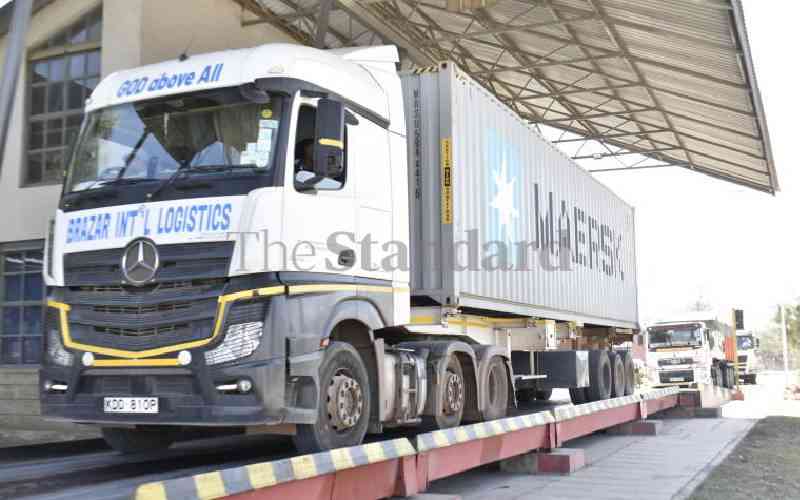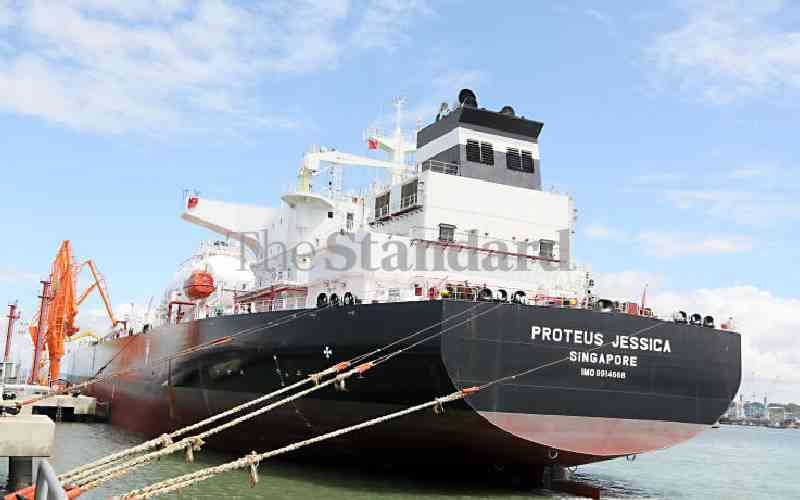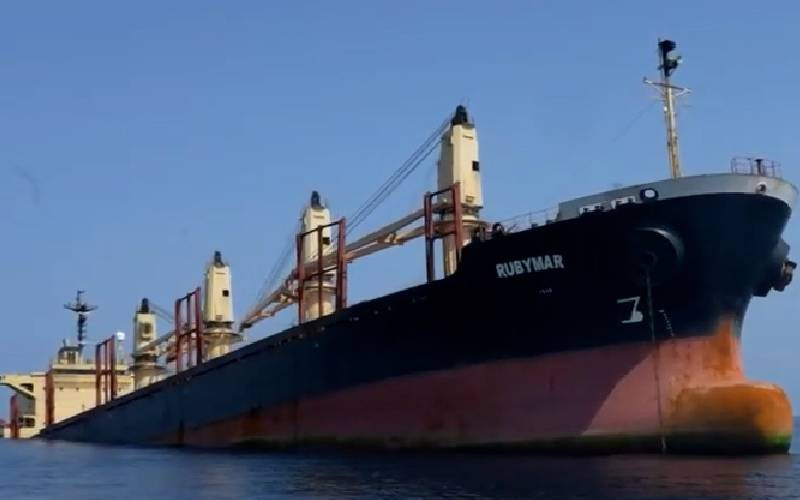 |
|
President Uhuru Kenyatta tours the construction of the new container terminal at Kenya Ports Authority during the signing ceremony of the Mombasa Port Community Charter and launch of KPA Strategic Plan and Charter Performance recently. [Photo: PSCU] |
More than a year since President Uhuru Kenyatta’s directive to have cargo clearing agencies at the Mombasa port remaining open 24 hours a day, 365 days a year, as part of measures to boost efficiency at the facility, stakeholders still complain of unrealised expectations.
Exporters and importers at the port have also expressed disappointment with the way State agencies and some private port operators have been implementing the order.
Pointing to either inadequate manpower on the part of relevant agencies or a dispirited and non-committal workforce, stakeholders reveal that the declaration that has so far failed in practice.
The directive was given by President Kenyatta in June last year, with a threat that agencies which failed to implement the order would risk having their licences revoked.
On the one hand, are exporters who claim that priority is being given to import goods as opposed to export goods.
“Today as we speak, customs officers who are serving exports will work up to Saturday at noon and come back on Monday...what this means is that you might miss a shipping line because there are certain ships which call only once a month.
It is very costly for cargo to wait for a whole month,” says a highly placed private port player who requested anonymity.
According to him the trend greatly affects tea exports and many containers carrying the product are left behind by departing ships after failing to receive KRA clearance, especially during weekends, despite having arrived at the port on time.
Second rating
This, he noted, reflects the second-rating of exports while priority is given to imported cargo, something which negatively impacts the economy by sustaining a high cost of doing business which is then passed over to consumers.
These claims were confirmed by the East African Tea Trade Association Managing Director Edward Mudibo, who said many exporters are of the view that more time is allocated to imports.
“My take is that all the key players, and especially customs, have to be keen to implement the 24-hour work model. Why can’t they avail the same amount of time for exports as they do imports?” posed Mudibo.
“Kenya earns foreign currency from exports because we are an agriculturally oriented country, so locally produced goods should be accorded similar attention as imports,” he added.
Mudibo urged State agencies to recruit more employees to ease the manpower crisis.
“The customs department should look at having more personnel so that employees can work between shifts to eliminate situations where nothing gets done between rotations,” he says.
Stay informed. Subscribe to our newsletter
Tea is the country’s leading export product which posted over 500 million exported tonnes last year, followed by soda ash and coffee, whose exports accounted for 423 and 264 million tonnes respectively in the same period.
During the recent imports-exports conference held in Mombasa, the Kenya National Chamber of Commerce revealed that Kenya largely remains a net importer of goods.
The chamber said the huge trade imbalance needs to be addressed by facilitating local industries to manufacture more local produce, adding that local businesspeople should venture onto regional and international markets if an equilibrium in trade is to be achieved.
Port performance
In the first half of 2014, imports at the Mombasa port posted a performance of 10.06 million tonnes compared to 1.65 million tonnes for exports. Last year, exports accounted for 34.4 per cent of cargo against 85.5 per cent in imports.
However, importers have reported similar concerns over the actualisation of the 24-hour directive with grievances about clearance of cargo documentation, transfer and release of goods by container freight stations.
According to the Car Importers Association of Kenya Chairman Peter Otieno, “...the directive is there in theory but not practical.” Kenya Ports Authority’s ship operations activities work around the clock, but the same has not been replicated by other State agencies involved in clearance.
“If one State official is available at a required time to handle their quota of verification, often, other officers from other agencies are missing at their work stations, and an import shipment cannot be entirely cleared for transfer to a container freight services terminal (CFS),” he said
Lunch breaks
He observed that State officials are either not at work during weekends, close operations early on weekdays or go on lunch breaks with no one to replace them. “CFSs also close at 5pm and the only thing that is done after 5pm is gate pass clearance,” he says.
According to Otieno, the delays in transfer and release of goods to and from CFSs are occasioned by lethargic verification processes and early closure of services, which is costly to importers who have to pay unnecessary demurrage and storage charges.
He also said that banks close at 8pm, which is a major challenge in the realisation of a 24-hour economy.
 The Standard Group Plc is a
multi-media organization with investments in media platforms spanning newspaper
print operations, television, radio broadcasting, digital and online services. The
Standard Group is recognized as a leading multi-media house in Kenya with a key
influence in matters of national and international interest.
The Standard Group Plc is a
multi-media organization with investments in media platforms spanning newspaper
print operations, television, radio broadcasting, digital and online services. The
Standard Group is recognized as a leading multi-media house in Kenya with a key
influence in matters of national and international interest.
 The Standard Group Plc is a
multi-media organization with investments in media platforms spanning newspaper
print operations, television, radio broadcasting, digital and online services. The
Standard Group is recognized as a leading multi-media house in Kenya with a key
influence in matters of national and international interest.
The Standard Group Plc is a
multi-media organization with investments in media platforms spanning newspaper
print operations, television, radio broadcasting, digital and online services. The
Standard Group is recognized as a leading multi-media house in Kenya with a key
influence in matters of national and international interest.










